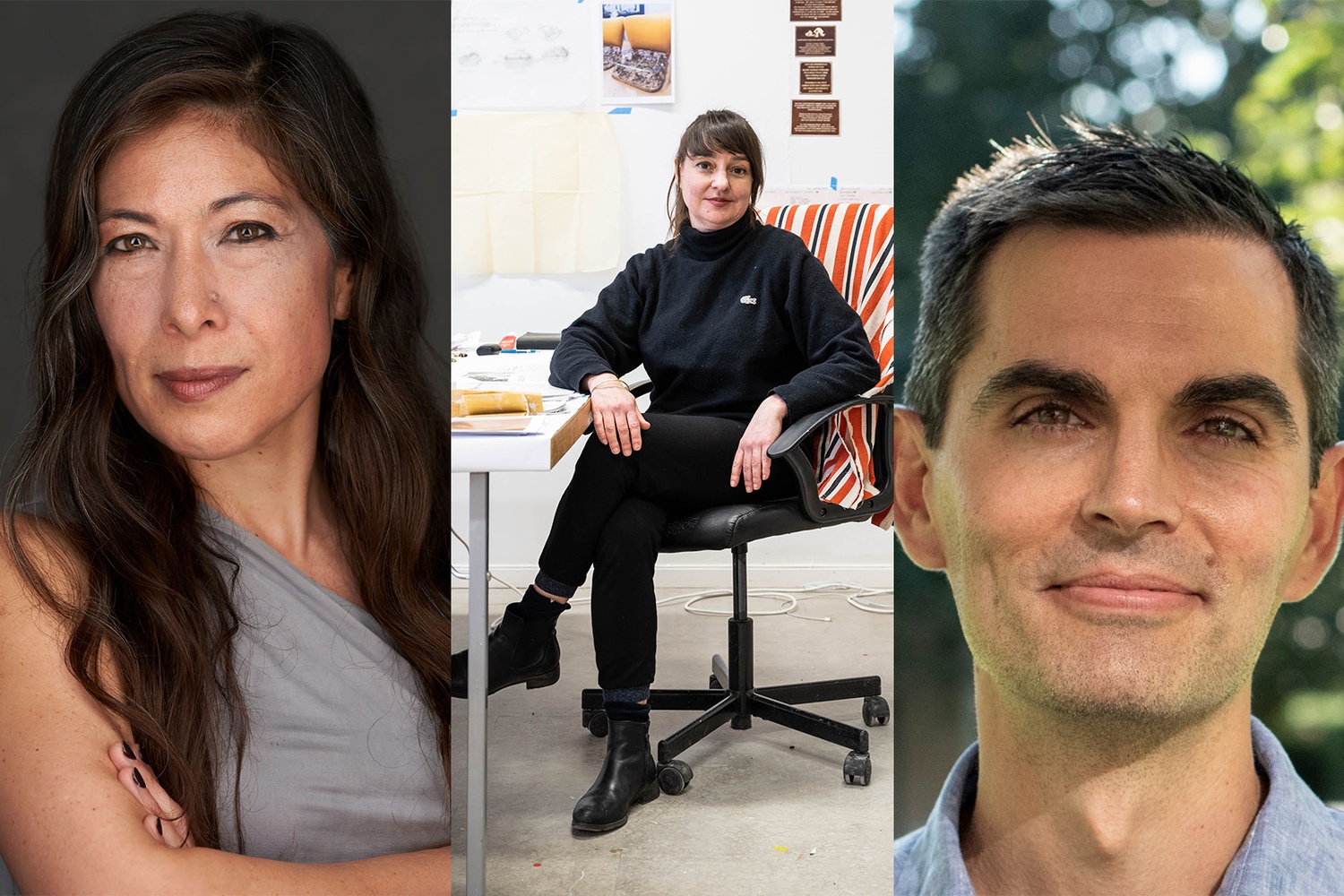
News
Summers Will Not Finish Semester of Teaching as Harvard Investigates Epstein Ties

News
Harvard College Students Report Favoring Divestment from Israel in HUA Survey

News
‘He Should Resign’: Harvard Undergrads Take Hard Line Against Summers Over Epstein Scandal

News
Harvard To Launch New Investigation Into Epstein’s Ties to Summers, Other University Affiliates

News
Harvard Students To Vote on Divestment From Israel in Inaugural HUA Election Survey
Three Harvard Faculty Members Win Guggenheim Fellowship

Three Harvard faculty members were among the 198 recipients of the 100th class of Guggenheim fellows selected from almost 3,500 applicants, the Guggenheim Foundation announced on Tuesday.
Spanning fields from religious studies to visual arts, the 2025 Harvard recipients were Sociology professor Christopher M. Muller, Harvard Divinity School professor Annette Yoshiko Reed, and Katarina A. Burin, associate lecturer in the Department of Art Film, and Visual Studies.
The fellowship — valued between $30,000 and $45,000 — aims to promote the advancement of scholars and artists by supporting their pursuit of research in any field of knowledge and creative work in any artistic discipline in “the freest possible conditions.”
“At a time when intellectual life is under attack, the Guggenheim Fellowship celebrates a century of support for the lives and work of visionary scientists, scholars, writers, and artists,” Guggenheim Foundation President Edward Hirsch wrote in the foundation’s announcement website.
Reed said she plans to examine various forms of “cultural forgetting” in Judaism and antiquity, and Burin said she will make a series of sculptures to explore themes of brutalism and communism. Muller plans to research the incarceration rates of Black and white Americans from the Reconstruction Era to the present.
The recipients said that as Harvard faces significant federal funding cuts directed at research, receiving the fellowship carries more emotional weight than in past years.
“I feel a little strange having funding because so many of my colleagues, both within the humanities and beyond, are losing funding,” Reed said.
For artists and researchers, financial uncertainty not only threatens specific research projects but also destabilizes entire careers built on years of dedication.
“It’s a terrifying moment for so many people,” Burin said. “I know what it’s like to research for years and years on something that you love, and I can’t imagine all of a sudden not being able to do that.”
Despite the uncertainty around funding, recipients said they were still honored to receive the fellowship and said they were “extremely grateful” for such a prestigious opportunity.
“The feeling that somebody’s willing to support your work, and that some of the work that I’ve done in the past is being recognized and celebrated in some way just means so much to keep me going psychologically,” Burin said.
The recipients said they expect to use the funding to facilitate travel for research, support book projects, and help them experiment with new tools.
“It’s financial, so it’s going to help me be able to do the research that I want to do,” Burin said. “But it also means investing in technology, like making a film, or working with sound recordings and things that I haven’t worked with before, and just expanding my practice into other media, which is wonderful.”
For Reed, receiving the fellowship is more than just money, but also a reminder to appreciate the opportunity to promote “knowledge making.”
“What we’re able to do — learning and teaching — is an incredibly precious thing, that we should not take for granted at all,” Reed said.
Want to keep up with breaking news? Subscribe to our email newsletter.
